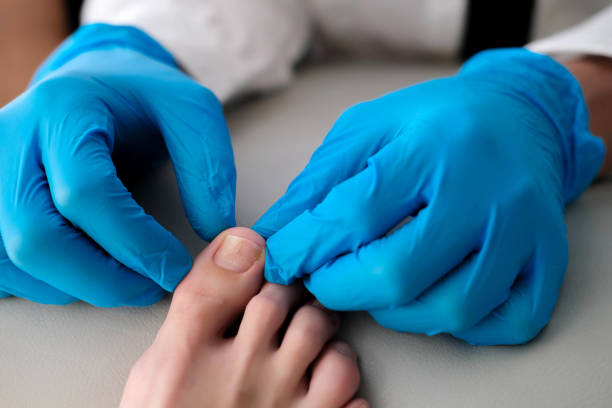
Nail disorders are a common problem that can affect people of all ages. Fortunately, most nail disorders can be treated by a podiatrist Sandringham. In this blog post, we will discuss the various types of nail disorders and how they are treated. We will also provide some tips on how to prevent nail disorders from occurring in the first place.
Nail disorders can cause a great deal of pain and discomfort. They can also make it difficult to perform everyday activities, such as walking or wearing shoes. If you are experiencing any symptoms of a nail disorder, it is important to see a podiatrist Melbourne right away.
There are many different types of nail disorders, but some of the most common include:
Ingrown Toenails: Ingrown toenails occur when the edge of the nail grows into the flesh of the toe. This can cause pain, swelling, and redness. Ingrown toenails are often caused by wearing ill-fitting shoes or by trimming the nails too short. Treatment for ingrown toenails typically involves soaking the foot in warm water and then trimming the nail.
Fungal Nails: Fungal nails are caused by a fungus that infects the toenails. This can cause the nails to become thick, yellow, or brittle. Fungal nails are often difficult to treat and may require oral medication.
Bunions: Bunions are a type of deformity that occurs when the big toe points inward toward the second toe. This can cause pain, swelling, and redness. Bunions are often caused by wearing ill-fitting shoes or by genetic factors. Treatment for bunions typically involves wearing special shoes or pads and taking pain medication.
There are also some things that you can do to prevent nail disorders from occurring in the first place. These include:
Wearing well-fitting shoes: One of the most frequent causes of nail disorders is ill-fitting shoes. Shoes that are too tight or too loose can place undue pressure on the nails, leading to deformities such as ingrown nails. Ill-fitting shoes can also contribute to fungal infections of the nails, which can be difficult to treat. To avoid these problems, it is important to choose shoes carefully. Make sure that they fit properly and provide enough support.
Avoiding trauma to the nails: Trauma to the nails can cause them to become ingrown or infected. Be careful when trimming your nails and avoid activities that could injure your nails.
Keeping your feet clean and dry: Fungal infections often occur in moist, dark environments. Keep your feet clean and dry to prevent this from happening.
If you have any concerns about your nails, be sure to see a podiatrist Brighton. They will be able to diagnose the problem and recommend the best course of treatment. By following these tips, you can help prevent nail disorders from occurring in the first place.

 Physiotherapists, have become such an integral part of medical treatment and rehabilitation. This comes as no surprise however as there is good reason why. Here are some of the benefits of physiotherapy.
Physiotherapists, have become such an integral part of medical treatment and rehabilitation. This comes as no surprise however as there is good reason why. Here are some of the benefits of physiotherapy. 